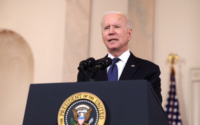Experts worry about the government falling behind on ‘Wellbeing Budget’ promises 2023
Four years have passed since Ardern unveiled her first so-called “Wellbeing Budget,” but according to experts, key indicators such as child poverty and mental health have not improved.
When Jacinda Ardern unveiled her ‘Wellbeing Budget’ in 2019, the world took notice.
Katherine Trebeck, co-founder of the Wellbeing Economy Alliance, remarked, “Many nations, policymakers, activists, and academics have looked to New Zealand and said, ‘This is the kind of leadership we need in the 21st century.'”
According to an expert on the ‘wellbeing economy,’ the notion that traditional measures of development such as GDP do not inform us how our country is truly doing indicates that we are regressing.
“Therefore, it is about the quality of life for people in all its dimensions, both now and in the future, without exceeding the planet’s precious limits,” said Trebeck.

Trebeck is troubled by Chris Hipkins’ recent elimination of climate policies and rejection of a wealth tax.
This week, she met with Finance Minister Grant Robertson in advance of his Budget to steer him back on course.
“Keep up the good work, don’t put down your tools just yet, there’s more to do.”
Robertson stated, “We’re breaking new ground, so we have to try things that other nations haven’t even considered.”
Robertson stated that the government has always maintained that it would take time to adjust the dial on the five 2019 priorities, including reducing emissions and addressing mental health.
“But by establishing them and incorporating them into each Budget, we can then use them as a guide for achieving our goals,” he said.
Nicola Willis, the finance spokesperson for National, stated that it has failed.

“There has been nothing but rhetoric and no action. “There has been a catastrophic failure to increase happiness,” she said.
The economist Max Rashbrooke added, “They haven’t necessarily had the political courage to follow through on their convictions.”
Because there is a significant disparity between what Labour may wish to do to improve well-being and what it can promote to the public prior to an election.
“If we got a little bit more tax from people who wouldn’t notice, and used that money to, say, make dental care free or affordable for millions of New Zealanders, that would make a huge difference in terms of wellbeing,” Rashbrooke said.
Clearly, a new tax would not be her preferred method, but Willis agreed that economic success should be measured by more than just GDP.
Willis stated, “Our approach to social investment involves intervening in people’s lives in ways that will actually improve their lives.”
An economy that nourishes both people and the planet – this is the objective on which all political parties can concur.
However, achieving results for issues such as child poverty and greenhouse gas emissions will require decades, not a three-year Budget cycle, if diverse approaches are taken.



